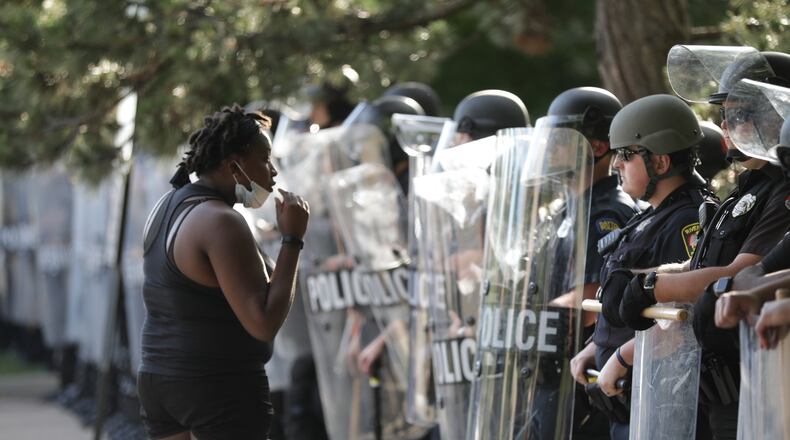I see the effects of a broken criminal justice system in my community every day. I have seen the effects of police misconduct. I do not have the background of someone who is usually helping reshape public policy, but I am exactly the type of person who should be.
I am proud to say I’ve been part of Dayton’s police reform process the last few months.
Several years ago, I got tired of seeing people just complain about things and decided to get to work. I began by organizing neighborhood clean ups, and eventually got connected with Will Smith, who has been organizing on the West Side around racial justice issues for many years.
Through my community engagement, I was connected to the City’s police reform tables that were created after the protests this summer.
More than 100 people from our community have been spending hours every week reviewing Dayton police policy and making recommendations for changes. The people involved come from all backgrounds: community organizers, clergy, police officers, public defenders, judges, and many others.
The new policies we have recommended will make our city safer for everyone. So far, they have included some big changes like body cameras, de-escalation training, a new alternative type of first responder who will respond to calls involving mental health crises or other non-violent situations, and the issues my group has been working on: changing hiring policies to make the Dayton police force more diverse. This is not talk.
What do you think? Send letters to the editor of 200 words or fewer to edletter@coxinc.com.
This is real change, led by Black voices.
What I value about this process is that people from West Dayton – people like me – are being listened to. Recommendations cannot move forward without a consensus of the community members. We are bringing our real experiences from our communities to the table. We learn about the issues, identify flaws or issues, discuss them with a diverse group, and create solutions. These conversations are often difficult. But they are necessary if we are serious about these issues.
I hope this can be a model for other important issues in Dayton and across the country.
This is just the beginning.
If we are going to address systemic racism and create a better Dayton, this is the work that must happen. If all you do is complain, you are a part of the problem. I am a solutions-based person: until you do the work, it’s just talk. Everyone is invited to learn more about this work and become a part of the solution.
Cornell Trammell lives in West Dayton and is a volunteer with Dayton’s police reform process.
About the Author

